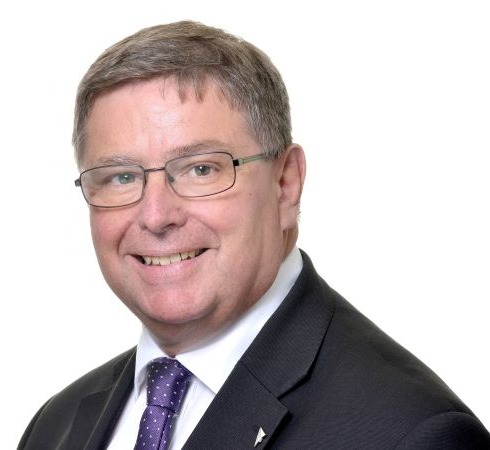Q&A with Iain Gray, Director of Aerospace at Cranfield University.
12/12/2019

With the drive for a more sustainable Aviation Industry, what changes do you foresee in Commercial Aircraft to help realise this vision?
“I think this year has seen the sector recognise and appreciate the significance and the role that aviation and aerospace have to play. In terms of changes, I think there are several elements.
One is on the technology itself; there is an increased focus around electrification, battery technologies, and hydrogen fuels. Which also reinforces the importance on areas like lightweighting with the drive to reduce the weight of aircraft.
But I also think it means that people need to understand a lot more about the overall system in which aerospace operates. This is where Cranfield has a real advantage, students studying aerospace need to understand where aerospace fits in an overall aviation system and where the aviation system fit in an overall environmental context. It isn’t just about being focused around a specific platform design or aircraft design. It’s about understanding how an aircraft and aircraft operations fits into and impacts the environment. How it links with air traffic control, links with the airport, links with other forms of infrastructure. I think that’s how it’s changing, there’s a much bigger emphasis on the overall integrated system level.”
What do you think are some of the most exciting career opportunities that these changes are going to enable graduates of the future to go into?
“In terms of opportunities, again, there are many different opportunities. Some of them perhaps as a direct consequence of the environmental challenges, like the potential for smaller companies that are making electric aircraft or hydrogen-powered aircraft, are going to be looking for graduates in a way that for the last twenty or thirty years they haven’t been.
There are some fantastic opportunities for new graduates to get involved with smaller companies that are looking at products driven by these environmental challenge opportunities. I also think it’s exciting because in the same way as I described earlier, the fact that people now need to understand where they fit within that broader aviation eco-system. I think there will be more mobility, people that have worked in aircraft design will be needed within airports or needed in air traffic control environments. It’s presenting the opportunity for graduates to go up in terms of the eco-system chain. That’s fantastic, that gives a much broader range of career opportunities.”
How do you think Cranfield’s helping to provide graduates with the required skill sets?
“I think Cranfield has a long-standing reputation in its traditional courses and the traditional courses need to adapt to this changing environment but Cranfield is also introducing new subject areas; robotics and applied artificial intelligence being two very good examples of new courses that address new technology requirements that help to develop the kind of skillsets industry are looking for in this new environment.”
To find out more about the range of courses available, visit our website or get in touch.
What advice would you give to an engineer looking to start their career in the Aerospace sector?
“Follow their intuition, do things, be brave, take advantage of some of these exciting opportunities within the sector, consider the large OEMs, Airlines, Airports, SME’s and start-ups there are exciting careers opportunities right across the sector. Do the things you want to do, the opportunities are there to do that in a way they haven’t been for the last two, three decades.”
For further details about our Aerospace offering: https://www.cranfield.ac.uk/themes/aerospace
Categories & Tags:
Leave a comment on this post:
You might also like…
Keren Tuv: My Cranfield experience studying Renewable Energy
Hello, my name is Keren, I am from London, UK, and I am studying Renewable Energy MSc. My journey to discovering Cranfield University began when I first decided to return to academia to pursue ...
3D Metal Manufacturing in space: A look into the future
David Rico Sierra, Research Fellow in Additive Manufacturing, was recently involved in an exciting project to manufacture parts using 3D printers in space. Here he reflects on his time working with Airbus in Toulouse… ...
A Legacy of Courage: From India to Britain, Three Generations Find Their Home
My story begins with my grandfather, who plucked up the courage to travel aboard at the age of 22 and start a new life in the UK. I don’t think he would have thought that ...
Cranfield to JLR: mastering mechatronics for a dream career
My name is Jerin Tom, and in 2023 I graduated from Cranfield with an MSc in Automotive Mechatronics. Originally from India, I've always been fascinated by the world of automobiles. Why Cranfield and the ...
Bringing the vision of advanced air mobility closer to reality
Experts at Cranfield University led by Professor Antonios Tsourdos, Head of the Autonomous and Cyber-Physical Systems Centre, are part of the Air Mobility Ecosystem Consortium (AMEC), which aims to demonstrate the commercial and operational ...
Using grey literature in your research: A short guide
As you research and write your thesis, you might come across, or be looking for, ‘grey literature’. This is quite simply material that is either unpublished, or published but not in a commercial form. Types ...






